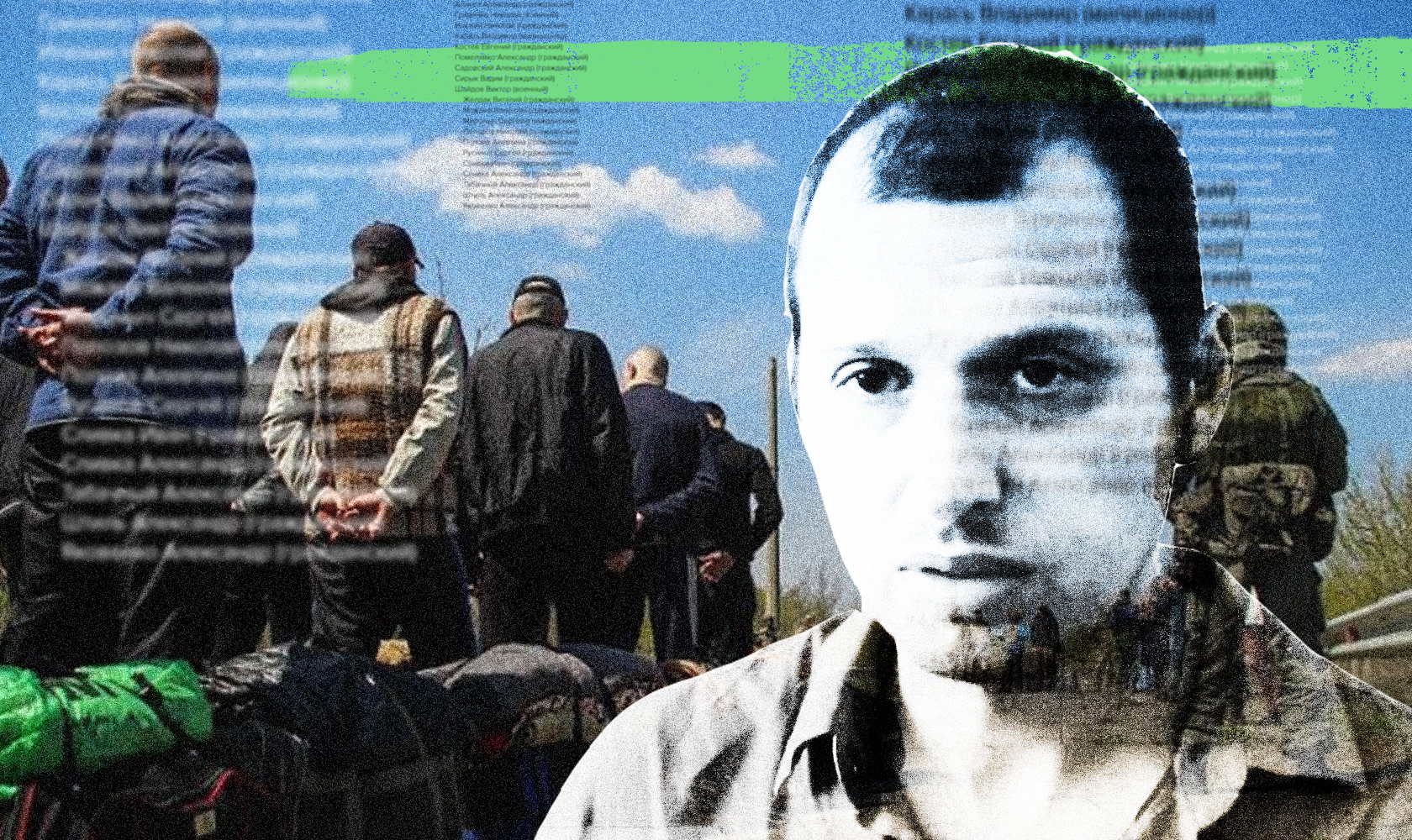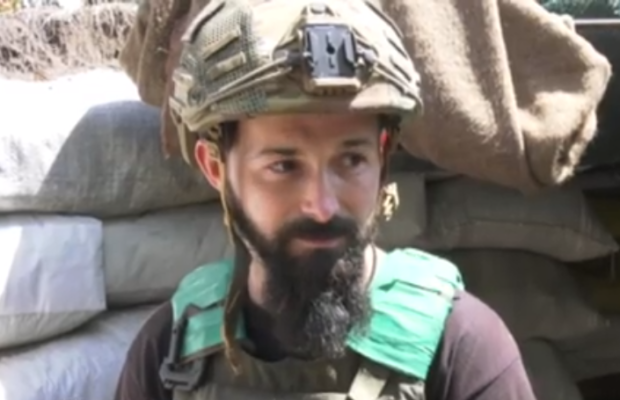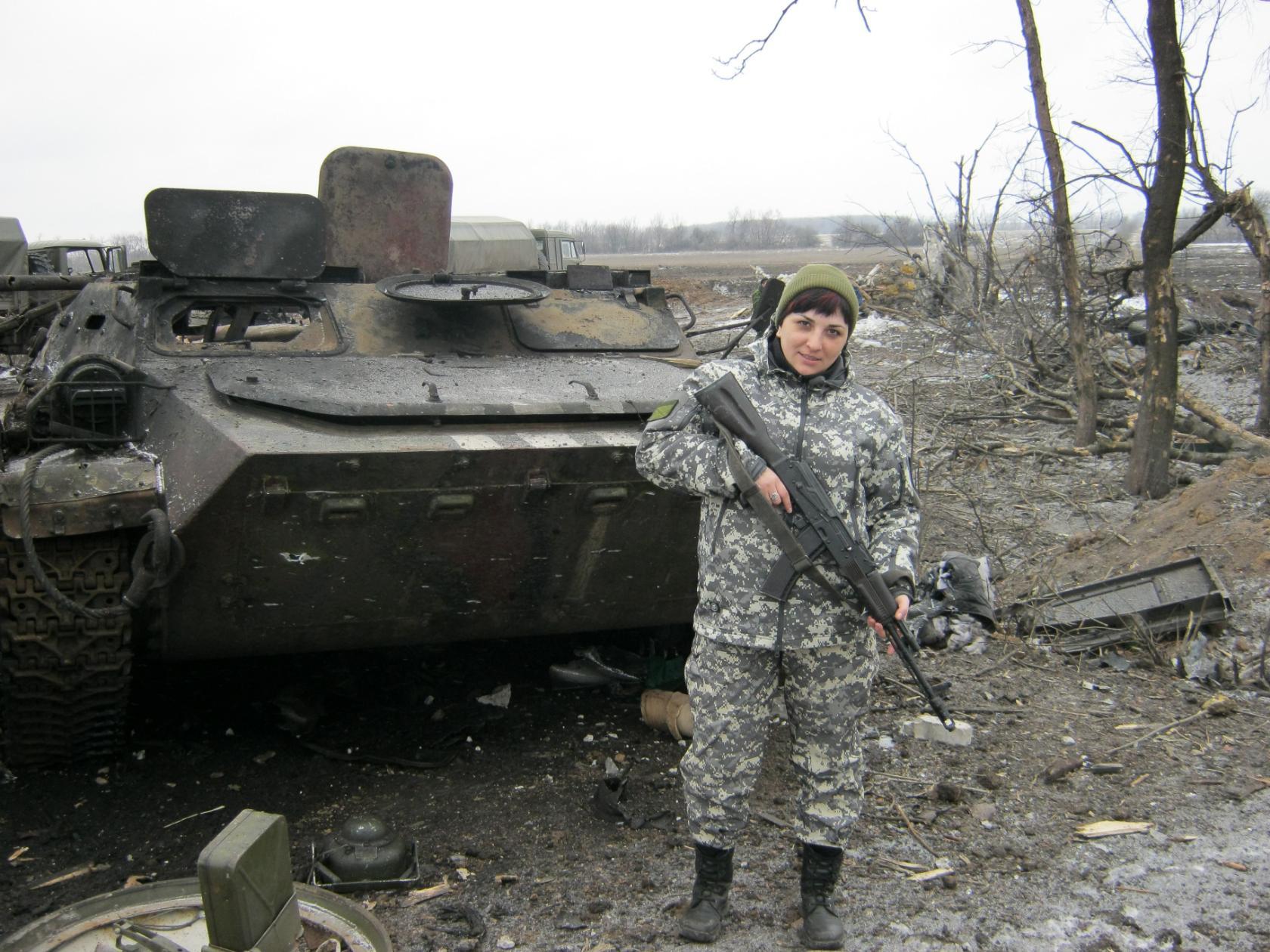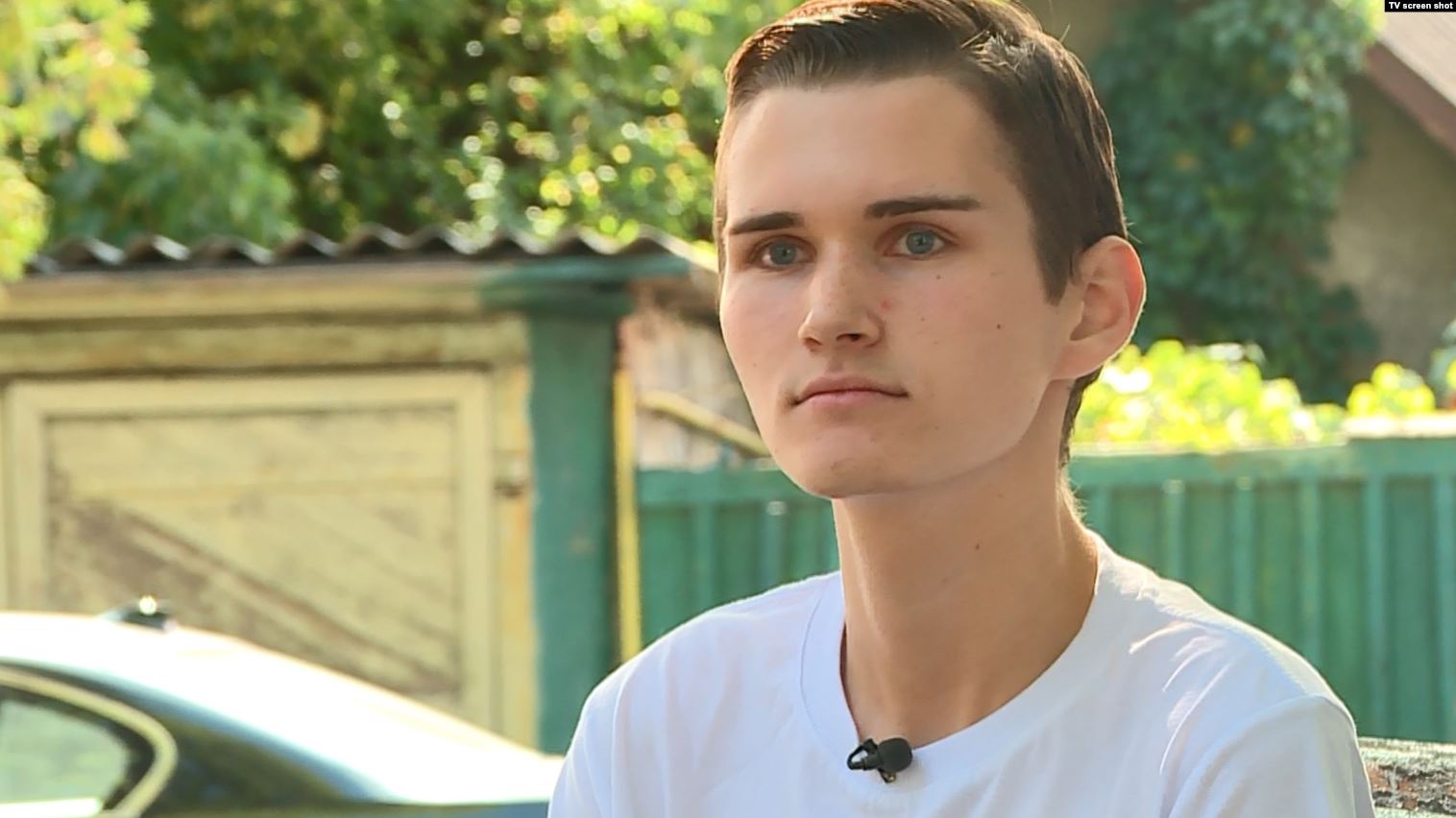Meanwhile, “LNR/DNR” authorities draw up their own lists that include alleged local terrorists, criminals, and other persons not at all party to the conflict.
Friends and relatives of the Ukrainian hostages are outraged that the Security Service of Ukraine (SBU) accepts any individual proposed by the Russian-backed militants.
Spontaneously drawn-up exchange lists
After the prisoner exchange on April 16, 2020, President Zelenskyy made the following statement:
"I’m satisfied and very happy when our soldiers, heroes, political prisoners and ordinary Ukrainian citizens come home."
Oleksiy Reznikov, the Minister for Reintegration of the Temporarily Occupied Territories of Ukraine echoed the same idea:
"There’s no universal formula for what makes one Ukrainian better than the other."
In the past year, the President of Ukraine and several government officials have stated that Ukraine should accept all Ukrainian citizens held in ORDLO prisons.
The Security Service of Ukraine, which is responsible for compiling the exchange lists, explains:
"Our priority is the release of all Ukrainian citizens who are illegally held in the temporarily occupied territories. We draw up our lists on the basis of appeals from relatives, reports of public organizations, the media, and exchange of information."
In other words, the so-called "exchange" list may include the names of any Ukrainian citizen in the occupied territories.

Relatives of the hostages say that during meetings with SBU representatives and members of the Presidential Office they repeatedly ask why soldiers and persons detained for their pro-Ukrainian position remain behind bars and in penal colonies, while individuals who were charged with criminal offenses - murders, robberies or possession of weapons - are released as part of the "exchange" program. Tetiana Matiushenko, wife of a civilian hostage, explains:
"They tell us that they’re helping anyone who applies for support. But, I’ve been appealing to our government since the summer of 2017, and to no avail… my husband, who was accused of espionage, is still in the hands of the militants.
We agree that every citizen who finds himself in a difficult situation in the occupied territories should be released, but today, Ukraine is paying too high a price. We’re giving them persons convicted for terrorism and treason. But, Ukraine’s 'exchange pool' may soon be exhausted and our patriots will remain in 'LNR/DNR' prisons."
The problem with the prisoner exchange lists is that there are no selection criteria. They are drawn up spontaneously.
If we go back to the beginning of the war (2014-2015), the SBU lists included mostly servicemen captured by the terrorists. Later, when the fighting became less intense, the number of civilians with a pro-Ukrainian position increased. ORDLO also detained Ukrainians suspected of other crimes - murders, rapes, thefts, etc.
It is worth noting that since 2014, the Russian-backed militants have managed to write their own "penal code", form a "penitentiary system", set up "law enforcement agencies" and a "judicial system". Thus, Ukrainian citizens were tried and convicted according to the "DNR/LNR laws".
Alina Pavliuk, lawyer with the Ukrainian Legal Advisory Group asserts that if an individual detained in the “LNR/DNR” has Ukrainian citizenship, the SBU can include him in the exchange list… and nobody is interested in knowing why that person was arrested and held in the occupied territories.
Girkin’s henchman
40-year-old Donetsk resident Yevhen Brazhnikov was released on December 29, 2019. His name on the SBU’s "exchange" list surprised many, as he once collaborated with the Russian-backed militants and was detained by his own acolytes.

At the time of his "arrest" in August 2016, Brazhnikov was working as Deputy Director for Security of the Donetsk Power Plant. The militants arrested him for alleged possession of weapons, several forged passports, and even a flag of the Ukrainian ultranationalist Right Sector.
Later, it was revealed that Yevhen Brazhnikov had started working with the militants in the spring of 2014, and the Right Sector flag was simply planted in his home to add "greater persuasiveness" to the accusations.
Former civilian hostage Stanislav Pechonkin, who was imprisoned in the Izoliatsiya Centre in Donetsk, underlines that Brazhnikov was an active operative working with the Criminal Investigation Department in Donetsk until 2010, and in 2014 joined the “Russian spring” movement, attacking pro-Ukrainian protesters, including on March 13, when activist Dmytro Cherniavsky was killed.
One of Brazhnikov’s terrorist friends calls him a "pro-Russian activist" who systematically provided financial assistance to the Russian mercenaries.
"When the fighting got really hot, Yevhen didn’t sit on the sidelines; he had several weapons and used them daily. When we fought the Ukrainians at Donetsk Airport on May 26-27, 2014, he held his position, firing his 308 caliber rifle and thus protecting our retreat from the demarcation line back to the city. He also waged an information war, helping to intercept subversive Ukrainian groups."
The friend continues that during the battle for Sloviansk in 2014, when the city was captured by Russian commander Igor Girkin and his mercenaries, Brazhnikov "supplied high-quality sniper scopes, thermal imagers, night vision devices, and tactical watches."
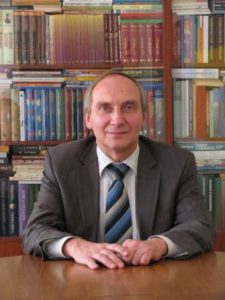
Well-known religious scholar and former hostage Ihor Kozlovskyi recalls that in December 2017 he was in the same cell with Brazhnikov in Donetsk:
"One day, we were ordered to gather our belongings; we thought we were going home. You should’ve seen Brazhnikov’s face at that moment! He was really scared… he said that he’d rather be shot, shouting that he’d rot in a Ukrainian prison because he was a staunch 'DNR' supporter. He was never pro-Ukrainian, and he was simply offended that he’d been treated like that by his Donetsk friends."
After Brazhnikov’s relatives had exhausted all other possibilities for his release, they submitted his name to the SBU’s exchange list.
On December 29, 2019, Brazhnikov was released and arrived in Kyiv, and on March 4, 2020, the SBU charged him with allegedly creating a terrorist group and violating the laws and customs of war, purposefully using torture and violence against civilian hostages, such as Stanislav Pechonkin and Oleh Kulakov.
However, the SBU does not comment on Brazhnikov’s alleged cooperation with Russian-backed militants in Donetsk and Sloviansk in 2014.
Some hostages should be investigated
Among the Ukrainian hostages released on December 29, 2019, there were several other individuals whose activities in the occupied territories should be of interest to Ukrainian law enforcement officers.
One such man is Volodymyr Burtsev. The SBU had been searching for him since 2015 on terrorism charges. Former hostages say Burtsev fought on the side of the terrorists in 2014, then was detained by Ukrainian police and transferred during one of the exchanges to ORDLO. But, in the occupied territories, he was accused of collaborating with the SBU and arrested again.
The SBU should also look into Vitaliy Anikimov and Oleksandr Danylchenko, who, according to former Ukrainian hostages, collaborated with “LNR/DNR” militants.
"Oleksandr Danylchenko previously fought with the 'LNR' Zorya Battalion; he was a sniper. He was responsible for Nadiya Savchenko when she was held in Luhansk region, but then began cooperating with the Ukrainian side," said former prisoner-of-war Yuriy Yevtushok, who gave this information to the SBU.
Vasyl Savin, who was also released in December 2019, was the head of the "Central City District Administration" of Makiyivka "DNR" in 2015. Many photos of Savin are available on the Internet. One photo shows him sitting at a table, the "DNR" flag hanging on the wall behind him. In another, he is donating blood for the "defenders of the republic". Savin also posted a video of Russian-backed militants, where the following words are heard:
"Every DNR patriot should stand to protect our young state. If you can’t join our forces and defend our young republic with weapons in your hand, donate your blood and help the volunteer movement."
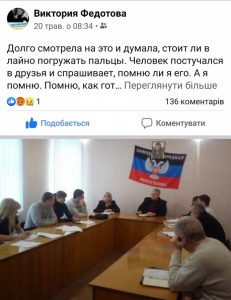

Savin did not work very long; he was arrested in 2015, accused of fomenting a coup, and sentenced to 23 years in prison. Savin claims that he acted on behalf of the Ukrainian secret services, that is, he was ordered to create a pro-Ukrainian volunteer battalion in Makiyivka in the winter of 2015 in order to undermine the system from within and return Makiyivka to Ukrainian control.
The SBU refused to comment on these Ukrainian citizens or any ongoing investigations.
Random individuals listed in prisoner swaps
Relatives of ORDLO hostages say that they are most worried about the most recent swap on April 16, 2020, when the militants handed over two Ukrainian soldiers and 18 civilians. How so many unknown civilians ended up on the exchange list remains a mystery.
"Please note that not one high-ranking official in Kyiv met with the released hostages even after the observation period. Why? Because the Presidential Office understands that most of them aren’t connected in any way to the conflict or they are open allies of the Russian-backed militants. During a meeting in the Presidential Office, we were told that some of these people had been released under the SBU "Come Home" program (На тебе чекають вдома). We really don’t understand how it relates to the actual prisoner exchange. It’s not at all clear why the list includes people who were convicted or suspected of committing criminal offenses." comments Tetiana Matiushenko.
Oleksandr Sadovskyi is one of these suspicious persons. He was arrested in early May in Kyiv for fraud and computer hacking. It was reported that, during his stay in Donetsk prison, he created a criminal group that was engaged in fraudulent SMS-mailings. Sadovskyi is also suspected of murder.
Another questionable pair is the Slyvok brothers, Oleksandr and Ivan, who were released by the “LNR”. They were held in the occupied territories for attempted sabotage, but former hostages claim that the brothers and their accomplices were engaged in simple robberies.
$32,000 US to get on the list
Former hostages and human rights activists believe that there are several reasons for random names being put on the exchange lists.
First, because Ukraine has no legal basis to filter the lists. Legally, the SBU has to include the names of all the persons whose relatives have applied for their release.
"There’s no law and order in ORDLO, and every year the so-called Luhansk and Donetsk militants record dozens of crimes not related to the war. These persons are detained and then "tried".
Of course, Ukraine doesn’t recognize ORDLO’s legal system, so all the detainees are eligible for exchange. We have yet to find a better mechanism than such "exchanges". Perhaps legislation should define specific criteria for drawing up these lists? For example, let’s pay special attention to the grounds for detention." says lawyer Alina Pavliuk.
Second, Ukraine’s approach can be abused by the applicants. People detained in the occupied territories on suspicion of murder, fraud, and drug possession understand that the only way to get out of prison is through a prisoner exchange, so they apply efforts and money to get on the lists.
"Individuals, who have committed criminal offenses in ORDLO, dream of getting their name on the list. The list has become a living myth. And when they see that men like Brazhnikov are getting out, this myth is confirmed.
Many so-called militants, who received long prison terms, told me that they were always looking for opportunities to be included on the list… through relatives, acquaintances, handing some money to 'DNR ombudsperson Dariya Morozova,' etc." says former hostage Ihor Kozlovsky.
At least two civilians, who had previously been behind bars with Yevhen, were released in the prisoner exchange on April 16, 2020. It was namely Brazhnikov who had advised them to apply to the SBU.
Third, some individuals, usually ORDLO officials, take advantage of these prisoner swaps to extort money from them or their relatives.
This fact was corroborated by Ihor Kozlovskyi who reported about militants demanding vast sums of money - sometimes tens of thousands of dollars - and more than one prisoner was ready to pay. Of course, this is all very hush-hush.
Denys Sekatskyi, a former hostage from Luhansk, also says that for money, the ORDLO terrorists can let a prisoner live or put his name on the list, even if he is a real spy. Sekatskyi admits that he had to pay $32,000 US.
In conclusion, Ukraine is taking a huge risk by returning random people, whose activities cannot be duly investigated by Ukrainian law enforcement agencies. In fact, it is more than probable that the “LNR/DNR” terrorists recruit such people to carry out sabotage or espionage activities in Ukraine.
"In ORDLO, a specific person can be shown as a Ukrainian patriot, and his patriotic statements are recorded and proclaimed everywhere. He is then 'condemned' by their so-called media. Thus, a legend is created, but in fact, they’ve turned him into a decoy. After the prisoner exchange, this 'whitewashed' person is entitled to certain benefits in Ukraine – state assistance, social benefits and funds. He lives among us, but we don’t know what he intends to do in the near or distant future," sums up Ihor Kozlovskyi.

